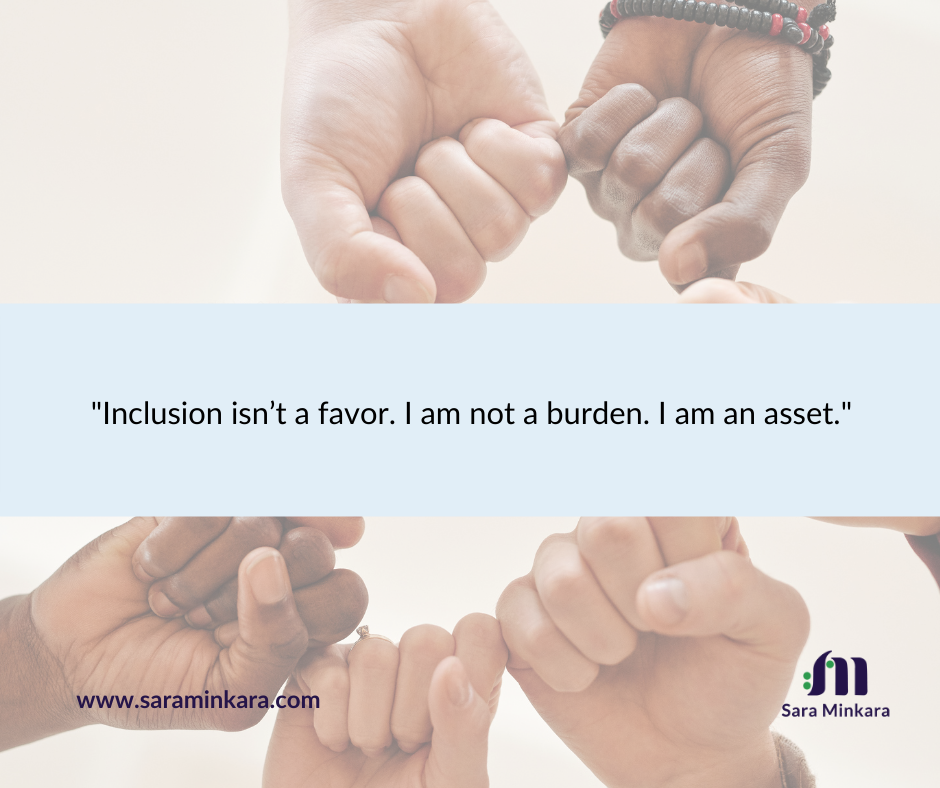The Real Value of Inclusion
Inclusion isn’t a favor. I am not a burden. I am an asset.
Inclusion and inclusive practice are increasingly considered necessary considerations in public and private spaces. We may agree that inclusion as an objective is neutral or positive. But what is the purpose? Why should we include other people? In my work, this question comes up frequently. Responses often fit one of three perspectives:
- Inclusion as charity, i.e., “let’s give to the less fortunate”
- Inclusion as pity: “oh, poor thing”
- Inclusion as a human right
But there is another perspective, that is almost never articulated: Inclusion based on value.
The approach is generally technical, or what I think of as a “box checking” method. Quotas are an example. We can check boxes to demonstrate inclusive achievements according to diversity factors or policies on paper. So, under these measures, technically, the inclusive infrastructure is in place at more places and serving more people.
But is that effective? Is it satisfying? Is it enough? Or is it just…checking boxes? Is it just easy? If the intention is to develop effective inclusive solutions, box checking is never going to be sufficient. It goes even beyond this though; people think that inclusion is just having a seat at the table or having a diverse table. But do people have equal access to said table? Are people able to bring their full authentic selves to the table? That kind of approach has no consideration for the value of a person as an individual; their value exists merely in their ability to check a box. But there are ways to approach inclusion that are actually inclusive.
I learned this lesson in graduate school. On the first day of class, one of my professors invited everyone to introduce themselves. When it was my turn, I explained that I am blind and requested that everyone share their names when they speak to accommodate me. The professor interjected and said no. I was baffled. How could someone deny me of my rights and accommodations?! He went on to clarify that asking my peers to share their names is not a favor to me, but rather fully including me in the class and the conversation allows everyone to fully benefit from my contributions.
That moment redefined how I approach inclusion. I have value, and am a value to the class, the workplace, the community. When we approach inclusion from a value-based perspective, we are more likely to develop policies and programs that are inclusive. This is far less costly and burdensome than having to rebuild or modify plans and structures because inclusive was treated as an afterthought rather than an integral part of the initial design.
This approach is at the core of my work at Sara Minkara LLC. Authentic Leadership was born out of the concept of value-based inclusion. Authentic Leadership is about embracing all of who you are and creating spaces for others to do the same, for one reason and one reason only: because we all have value, and we all belong. The more someone is empowered to embrace their true self, the more their value is brought forward. And we all benefit when we are all empowered to be our best selves. So yes, choose inclusion, but not out of a sense of charity or pity, or because you think we have a right to be included. Choose inclusion because you see the value in diversity and understand that everyone has something beautiful to contribute. Because we do!
To learn more please visit www.saraminkara.com


